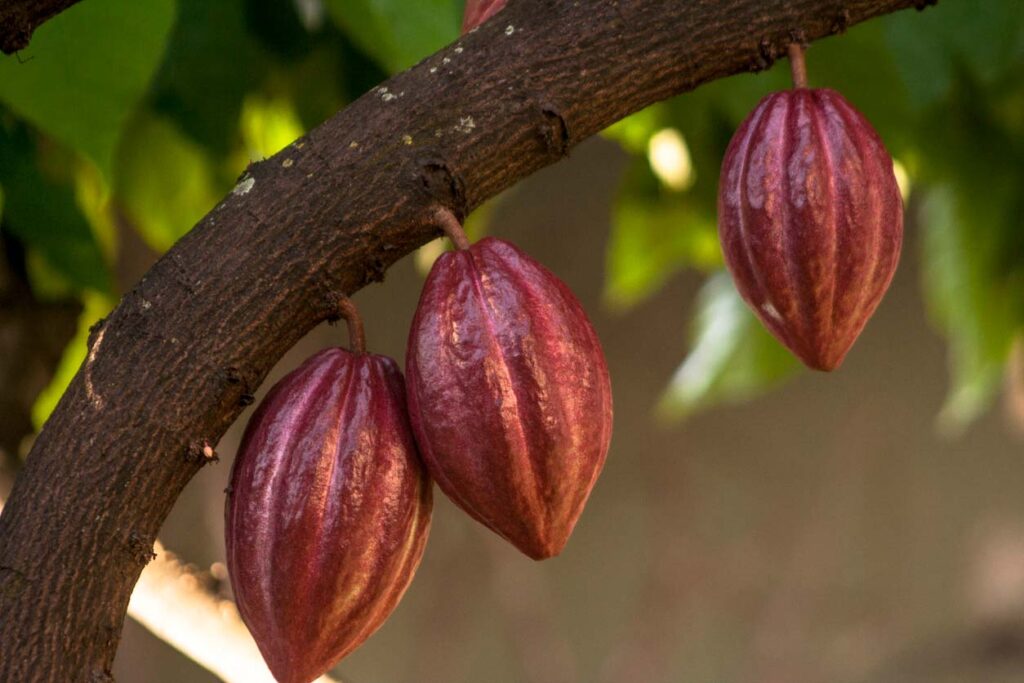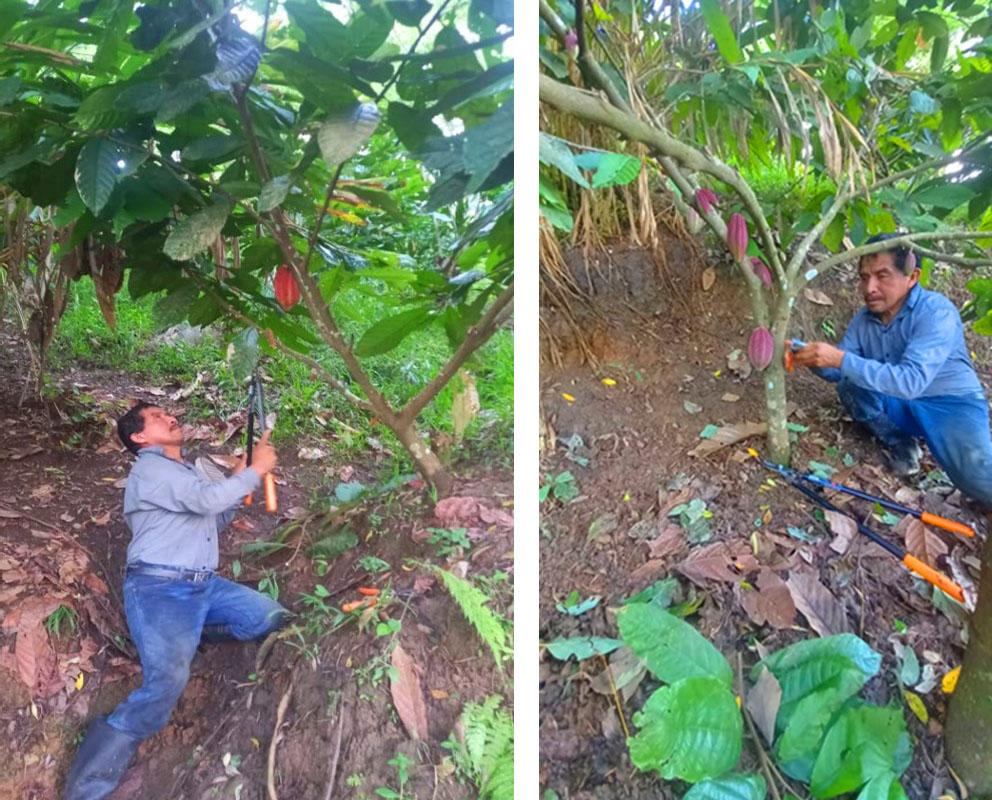- The good agricultural practices learned in the trainings provided by MOCCA, Lutheran World Relief and Cacao Verapaz, allowed cocoa farmers in Alta Verapaz (Guatemala) to double their production and increase their income.
- MOCCA is a 7-year initiative funded by the United States Department of Agriculture (USDA) through its Food for Progress Program, which seeks to improve agricultural productivity and expand trade in agricultural products. The MOCCA project is being executed by a consortium led by TechnoServe, Lutheran World Relief leads the cocoa activities.
Cocoa cultivation in Guatemala is concentrated mainly in the departments of Quiché, Alta Verapaz, Petén, and Izabal, as well as in areas of the southern coast of the country. The department of Alta Verapaz has been Guatemala’s largest cocoa producer for many years.
In the village of Pinares in the, municipality of Santa María Cahabón, Alta Verapaz, lives Mr. Alfonso Ical and his wife Romelia Bolón, parents of 6 children, 5 of whom are women. They are very active members of their community and members of APIDIP, an organization for the productive development of indigenous peoples.
The family has been growing cocoa for 5 years and has established a 1.8 hectare plantation under agroforestry systems, integrating fruit trees, including orange, paterna, and mango, as well as other forest tree species.
“We encourage other producers to establish plantations under agroforestry systems to obtain environmental benefits, diversify their crops and build new sources of income,” says Romelia Bolón.

In the departments of Alta Verapaz, MOCCA works in alliance with the Cacao Verapaz.
“In 2019, MOCCA technicians approached us to present the program and since then we have participated in trainings to learn how to improve our plantation; we have learned pruning, grafting, fertilization, pest control, soil management, and other good practices”, says Alfonso Ical
In 2019, husband and wife Alfonso and Romelia obtained a harvest of 10 quintals of cocoa in slime, which was sold to APIDIP, producing an income of 3 thousand Quetzales for the producer family (US $380). The following year, producers doubled their yields and consequently their income from the sale of cocoa.

“Thanks to the good cultivation practices MOCCA program technicians have taught us , in 2021 we produced 25 quintals and were paid 15% better prices. Our goal for 2022 is to produce 58 quintals and double our income”.
Alfonso Ical, cacao producer | Alta Verapaz, Guatemala
“My husband and I always encourage other cocoa producers to persevere, train constantly, and apply the good practices learned. Cacao has brought winds of change to our lives; it has allowed us to educate our children and repair and make improvements to our house”, says Romelia Bolón.
In Guatemala, MOCCA has formed partnerships with buyers and other organizations, through which it trains more than 1,500 cocoa producers, providing integration into higher value markets, technical assistance, research, and access to quality genetic material.







